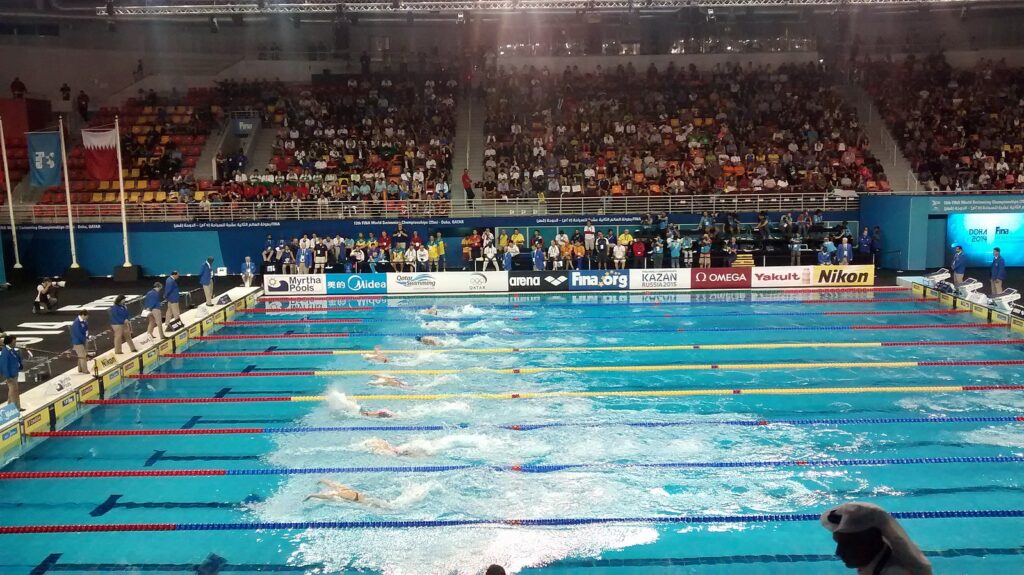The debate around transgender women competing in women's categories took a decisive turn this week, with FINA, the international swimming federation and the International Rugby League (IRL) having taken the critical decisions to ban trans women from international competitions.
The decision from the two sporting bodies promises to reignite tensions on the rights of trans people and their eligibility to compete in elite sports competitions.
On Sunday, International Swimming Federation (FINA) President Husain Al-Musallam announced in Budapest that swimming intends to become "the first sport" to introduce an "open category" where transgender athletes can compete.
Trans women can only compete in women's competitions “provided they have not experienced any part of male puberty beyond Tanner Stage 2 [which marks the start of physical development], or before age 12, whichever is later”.
"I don't want anyone to say to an athlete that they can't compete at the highest level," Al-Musallam told an extraordinary congress of the body held during the World Championships in the Hungarian capital. "I will set up a working group to create an open category in our competitions. We will be the first federation to do so."
Rugby League calls for 'full inclusion policy'
On Tuesday, the rugby-governing International Rugby League (IRL) announced it would be following suit with a ban. Transgender women will not be able to take part in women's international rugby league matches until a "full inclusion policy has been established."
Until this policy is finalised, "players transitioned from male to female (transgender) cannot participate in women's international rugby matches," the IRL said in a statement.
“In the interests of avoiding unnecessary welfare, legal and reputational risk to international rugby league competitions, and those competing therein, the IRL believes there is a requirement and responsibility to further consult and complete additional research before finalising its policy," the rugby-governing body stated.
'Too difficult to touch'
Critics and sex-based rights activists claim there is an unfair advantage in sport for individuals who have transitioned from male to female. The argument centres on the increased levels of testosterone, muscle and weight advantage. However, many sporting bodies have formulated their own policy on the issue.
Last year, the International Olympic Committee (IOC) announced in its new guidelines that there should be no assumed advantage due to sex variations, physical appearance or transgender status. The new guidelines were written in consultation with leaders in medicine, athletics and human rights, with the conclusion that every sport will differ on whether there are disadvantages associated with the identity of the athlete.
However, many sporting bodies will be hesitant to make a concrete decision on an issue which, for years, was deemed to be "too difficult to touch."

